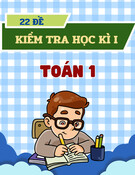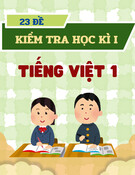
1
SỞ GD & ĐT SƠN LA
ĐỀ KIỂM TRA GIỮA KỲ I - NĂM HỌC 2010 - 2011
MÔN: TIẾNG ANH
LỚP: 10
Thời gian làm bài: 45 phút
(Học sinh làm bài trực tiếp vào đề) Mã đề thi 215
Họ, tên thí sinh:..........................................................................
Số báo danh:...............................................................................
I. Choose the word which is stressed differently from the rest.
1. A. sugar B. cup C. put D. pull
2. A. tea B. sea C. meat D. wear
3. A. teacher B. water C. term D. other
4. A. bird B. shirt D. thirsty D. tired
II. Choose the word or phrase - A, B, C, or D - that best completes the sentence.
5. Jane isn't on the phone, _______ makes it difficult to contact her.
A. who B. which C. what D. where.
6. The alarm clock _________ off, which woke everyone up.
A. rang B. went C. gave D. put
7. “_________ do you go swimming?” – “Twice a week.”
A. What time B. How C. How long D. How often
8. _________ Ali went to sleep, he had called his family.
A. Before B. After C. As soon as D. While
9. I'd like to borrow this book. _________it yet?
A. Did you read B. Had you read C. Have you read D. Do you read
10. _________money do you earn? - About £250 a week.
A. How much B. What C. How many D. Which
11. He agreed _________the job as soon as possible.
A. start B. starting C. to start D. to be started.
12. He behaved like an adult. I think he is more_________ than the other boys at his class.
A. intelligent B. mature C. ambitious D. developed
13. I_________ swimming in the stream near my house when I was small.
A. used to go B. used to going C. am used to going D. was used to go
14. To build a fair society, rich people should be responsible for helping __________
A. poor B. the poor C. the poorly D. the poorly people
III. Choose the word that best fits the blank in the following passage.
I am thirty years old. I (15) _____born in a small town in the west of England. I (16) _____
there all my life, but I usually (17) ______my holiday in London. My town is not the same as in 1960
or 1965. In those days, we (18) ________walk from one side to the other side in about 15 minutes.
There (19) _______two schools but no big factories. Then in 1968 they build two factories, and a lot of
people came to my town. Both the factories are very big and I now have a job in one of (20) _______
15. A. was B. have C. am D. were
16. A. will live B. am living C. lived D. have lived
17. A. spend B. am spending C. am passing D. pass
18. A. could B. can C. was able to D. were able
19. A. have been B. has been C. was D. were
20. A. them B. this C. their D. they
V. Identify the one underlined word or phrase - A. B. C or D - that must be changed for the
sentence to be correct.
21. I advise you starting looking for a flat at one.
A B C D

2
22. Mike drives usually to work, but today he is walking.
A B C D
23. I can't find my diary, that is a real nuisance.
A B C D
24. The homeless usually has great difficulty in getting a job
A B C D
VII. Choose the sentence (A, B, C, or D) which is closest in meaning to the sentence printed before.
25. I didn't use to like football.
A. I don't like football.
B. When I was young I liked football, but now I don't.
C. Once I didn't like football, but now I do.
D. I wasn't accustomed to football.
26. Adrian wears jeans all the time.
A. Adrian always wears jeans. B. Adrian often wears jeans.
C. Adrian sometimes wears jeans D. Adrian usually wears jeans.
27. Their game of badminton is always on Tuesday.
A. They always play their game of badminton
B. They play badminton always on Tuesday.
C. They always play badminton on Tuesday.
D. They have always played badminton on Tuesday
28. Henry should have done his homework last night, but he watched TV instead.
A. Henry didn't watch TV last night because he had to do his homework.
B. Henry watched TV last night instead of doing his homework.
C. Henry did his homework while watching TV.
D. Henry had already done his homework before he watched TV.
VI. Give the correct form of the verbs in brackets.
29. When I was small, I always (want)_________________ to be a pilot.
30. Mrs. Black often (do)____________________ the shopping at weekends.
31. When I got home last night, everyone (go) ___________________to bed as it was too late.
32. (you/ water)____________________________the flowers yet?
VII. Read the passage below and answer the questions that follow.
Thomas Edison was born on February 11th, 1827 in Milan, Ohio. When he was at school, his
teacher considered him to be a slow student. Because of hearing problems, Edison had difficulty
following the lessons. But with only three months of formal education he became one of the greatest
inventors and industrial leaders in history.
Edison’s most famous invention was the electric light bulb. He also invented the phonograph,
and made improvements to the telegraph, telephone and motion picture technology.
Edison had a special life. He married twice with five children. He loved books, had excellent
memory, and always showed curiosity about science.
Although he had hearing problems, he refused to have an operation for his deafness. He said that
silence helped him concentrate. He always worked very hard and often had only four hours of sleep
every day. He used to say, “Genius wad 1 percent inspiration and 99 percent perspiration.” When he
died on October 18th, 1931, at the age of 104, he was still working on new ideas.
33. Why did Edison find it hard to follow his lessons?
................................................................................................................................................
34. What was Edison’s most famous invention?
................................................................................................................................................
35. How many children did he have?
................................................................................................................................................
36. How old was Edison when he died?
................................................................................................................................................

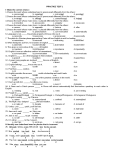
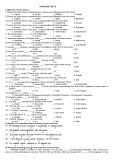
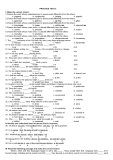
![Đề kiểm tra Tiếng Anh 12 trắc nghiệm: [Kinh nghiệm/Mới nhất/Chuẩn nhất]](https://cdn.tailieu.vn/images/document/thumbnail/2011/20111010/portsmouth2518/135x160/lesson_8_0966.jpg)
![Đề kiểm tra Tiếng Anh 12 trắc nghiệm: Tổng hợp [Năm]](https://cdn.tailieu.vn/images/document/thumbnail/2011/20111010/portsmouth2518/135x160/lesson_1_1279.jpg)
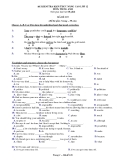
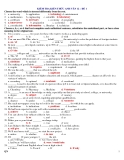
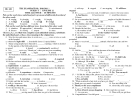
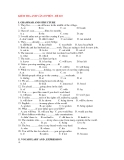
![Đề kiểm tra Tiếng Anh 1 tiết trắc nghiệm [năm] mới nhất](https://cdn.tailieu.vn/images/document/thumbnail/2011/20111008/chelsea2518/135x160/kiem_tra_anh_van_45_ph25_5667.jpg)





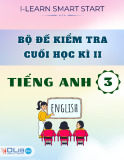
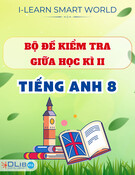
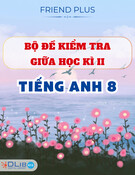
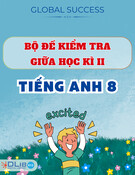
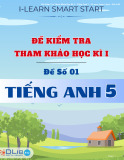

![Đề thi Tiếng Anh có đáp án [kèm lời giải chi tiết]](https://cdn.tailieu.vn/images/document/thumbnail/2025/20250810/duykpmg/135x160/64731754886819.jpg)
